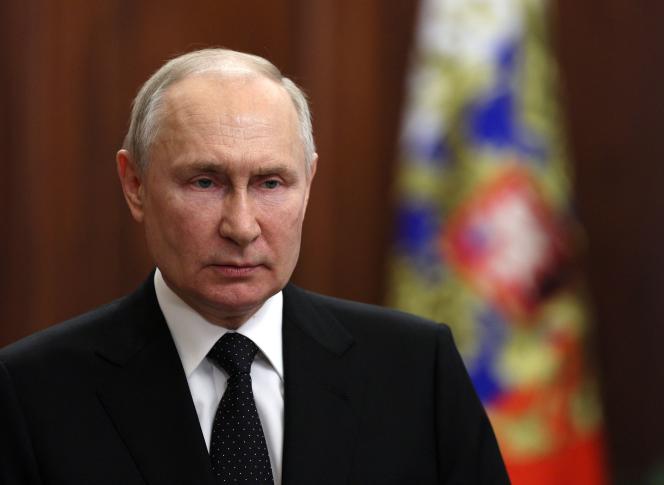Back to normal in Russia: on the Wildberries online sales site, products with the “Wagner” logo are back. On the roads south of Moscow, they are filling in the pavement, ripped open the day before with a backhoe. Anecdotal? Revealing a country which hastens to forget an episode as brief as it is dizzying: the rebellion of a private militia which succeeded, in one day, that of Saturday June 24, in seizing a town of one million inhabitants and to approach within 200 or 300 kilometers of the capital without encountering any serious resistance.
The criminal investigation opened against Yevgueni Prigojine for “call for armed insurrection” was closed – the announcement was made by Kremlin spokesman Dmitry Peskov. Even the Ministry of Defense seems to consider the episode closed. On its social networks, Saturday evening, the ministry published a photo proclaiming “cohesion and unity”. The damage caused by the Prigojine adventure must be written off: Russian military bloggers estimate these losses at between thirteen and twenty in the ranks of the army, almost all of them killed on board shot down aircraft (six helicopters and an airplane).
Nineteen buildings in the Voronezh region were also affected by the fighting and the refinery in the city of Voronezh was still on fire on Sunday. This did not prevent, the same day, the deputy Andrei Kartapolov, head of the defense committee at the Duma, from assuring that the authorities had not “no complaints” to address to mercenaries: “They didn’t offend anyone, they didn’t break anything”he assured.
Affection for the putschists
In Rostov-on-Don, the epicenter of the crisis, life has also resumed. On Saturday evening, Wagner’s fighters and the armored vehicles they had deployed in town began to leave, to cheers from locals – a mixture of relief at seeing the bloodbath averted and adherence to Yevgeny’s anti-elite rhetoric Prigozhin. The Kremlin will not fail to notice this affection shown to the putschists by part of the population.
The crisis ended as abruptly and surprisingly as it had begun. But will she be forgotten so easily? First, we only know the main lines of the agreement concluded under the aegis of the Belarusian leader Alexander Lukashenko, which allowed a peaceful resolution. Evgueni Prigojine has saved his head, at least temporarily: the proceedings against him have been dropped and the Petersburg businessman must be welcomed in Belarus. His political adventure − did he not claim to bring back “order and justice” ? − finds a term, maybe he too momentary.
You have 67.27% of this article left to read. The following is for subscribers only.
